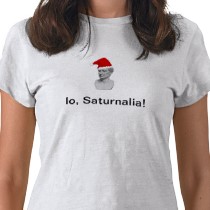 |
| via Wikimedia Commons |
This recent NYT article (on lawyers’ need for training post-law school) fits in with something I’ve been thinking about: what enduring benefits does grad school confer on humanities profs, beyond a credential required for employment?
Grad school made my Latin and Greek much better, of course; writing a dissertation helped my research skills. But I have to wonder if grad schools go about this in the most useful way, since I've only once taught an author from one of my grad school seminars. I've also found writing a publishable article an absolutely foreign experience, despite having written and defended a dissertation.
Maybe going 'back to the basics' is a common reaction to adversity, but it's been odd how often in the five years since I started my career that I've returned to authors, teaching methods or writing tips I encountered in my undergrad classes. I know grad school must have been more than 8+ years of waiting to mature and practicing translation skills, but I'm finding it hard to identify specifics right now.
Maybe going 'back to the basics' is a common reaction to adversity, but it's been odd how often in the five years since I started my career that I've returned to authors, teaching methods or writing tips I encountered in my undergrad classes. I know grad school must have been more than 8+ years of waiting to mature and practicing translation skills, but I'm finding it hard to identify specifics right now.




